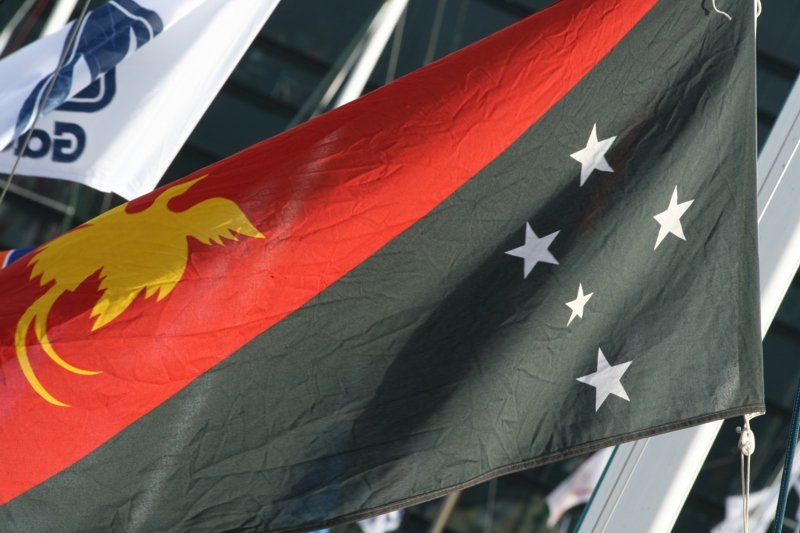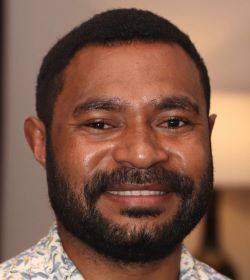On 15 December 2022, Papua New Guinea (PNG) abstained from voting on the United Nations General Assembly’s (UNGA) ninth resolution for a moratorium on the use of the death penalty, which was adopted with support from 125 states. While PNG has previously voted against the UNGA’s moratorium resolution six times, its abstention in 2022 marked the country’s third abstention since 2007. Yet this voting pattern is starkly at odds with the country’s domestic status as an abolitionist nation. This post argues that instead, PNG should begin to champion its abolitionism on the international stage, and become a regional advocate for universal abolition of capital punishment.
PNG has already abolished the death penalty in its domestic law on two occasions. The first abolition of the death penalty in law occurred in 1974, on the bases that the punishment did not serve as a deterrent against violent crime and due to difficulties in interpreting the ‘extenuating circumstances’ in which it applied. This followed the conclusions of the Law Reform Commission – established by PNG’s first Parliament in 1973 to draft the Criminal Code of the newly independent PNG – which further concluded that the death penalty was culturally unsuited for use in PNG. However, in 1991, capital punishment was reintroduced, purportedly to act as a deterrent at a time of increasing law and order issues.
Despite this reinstatement, political support for the death penalty has always been lacking. The 1991 Parliamentary bill for reintroduction of capital punishment, introduced as an amendment to the Criminal Code Act 1974, was passed by only 48 out of 109 MPs. 19 MPs voted against, and an extraordinary 42 MPs, including two former prime ministers, were absent at the time of voting. Churches and non-governmental organizations in PNG have frequently opposed the death penalty from a human rights perspective. And despite capital punishment’s existence in law and the continuous imposition of death sentences by the courts, no executions occurred in the period between 1991 and its second abolition in January 2022.

Photo credit: Contando Estrelas via Flickr. Licensed under Creative Commons CC BY-SA 2.0.
In PNG, the death penalty has often been used as a political tool, promising deterrence in response to public outcries, but without the intention to implement it. Although some steps towards implementation were taken before 2022, these were mostly symbolic. After a 2013 amendment to the Criminal Code Act which made ‘murder on account of accusation of sorcery’ one of the crimes punishable by death, the government took several actions. These included the establishment of a committee made up of key government agencies in 2014 to oversee the implementation of the death penalty; a fact-finding tour in Asia and the United States to seek appropriate modes of execution that could be applied in PNG; and a proposal to construct a prison for high-risk offenders and death row inmates on an isolated island in PNG’s Manus province. The fact-finding team, for instance, which cost USD 600,000, submitted their final report entitled Implementing the death penalty in Papua New Guinea for approval, but this was rejected seven times by the National Executive Council, PNG’s cabinet – the very cabinet that approved and sent the team on its missions. Ultimately, none of these steps resulted in implementation.
PNG had long maintained a de facto moratorium since the 1950s. The country’s actions internationally, particularly its participation in the UN Human Rights Council’s Universal Periodic Review (UPR) process and the UNGA’s moratorium resolution, have been somewhat in favor of the death penalty. But these actions contrast with the country’s domestic experience of abolition. Prior to its second abolition in 2022, PNG was classified by Amnesty International as ‘abolitionist in practice’ – a country that retains capital punishment but has a policy or practice of not carrying out executions. PNG is now classed as an ‘abolitionist for all crimes’, and even if capital punishment were ever reintroduced in law, the country would most likely revert to its previous status as abolitionist in practice, rather than ever carrying out executions.
PNG is an inherently abolitionist nation. The country’s actions at the domestic level have repeatedly indicated its significant opposition to the retention of the death penalty in law. While some confusion has arisen from its position at the international level, the country in fact once joined 75 other states in supporting a 2003 UN Commission of Human Rights resolution calling on all retentionist states to establish a moratorium on executions and abolish the death penalty. Following its second domestic abolition, PNG can now begin to influence other countries in the region, including Tonga, by supporting future UNGA moratorium resolutions and becoming a regional advocate for abolition. Finally, as a party to the International Covenant on Civil and Political Rights (ICCPR), PNG can take a further step to consolidate its abolitionist status by starting the process of ratifying the Second Optional Protocol to the ICCPR now, confirming its place in the international abolitionist community ahead of its next UPR review in 2026.
 |
Moses Sakai is a researcher based in Port Moresby, Papua New Guinea. He also teaches at the University of Papua New Guinea's School of Business and Public Policy. |
Share:
